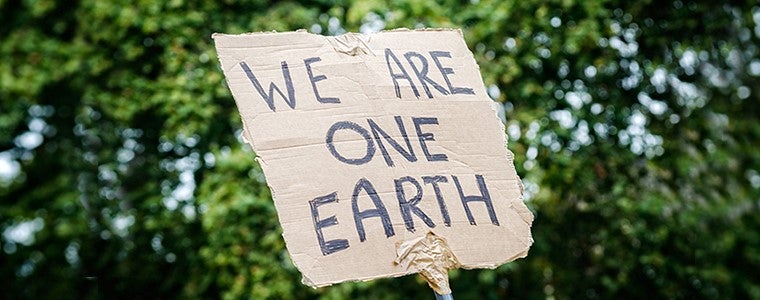The Paris Agreement belongs to everyone says Costa Rica’s Christiana Figueres, one of the chief architects of the deal. That’s why 20,000 diplomats, multilateral development bank officials, researchers, activists, business and religious leaders, journalists and ministers met recently at the UN Climate Change Conference (COP 23) in Bonn, Germany.
The Inter-American Development Bank Group (IDBG) was there too, to support our Latin American and Caribbean partners and demonstrate how we are bringing our operations into line with the Paris deal. The Bonn conference shows how the implementation of the Paris Agreement is underway with real progress being made to build a low-carbon and climate resilient future.
This global action is happening for various reasons:
1. Climate change action makes economic sense.
Last May, the OECD stated that combining climate policies with economic policies to boost investment in sustainable infrastructure could increase GDP by up to 2.8 percent on average across G20 countries in 2050.
2. Tackling climate change is about reducing climate risk.
A failure to manage this risk could lead to systemic shocks that could have major economic and financial implications. Banks, companies and investors support measures that report on the physical and transitional risks they face and the steps they are taking to deal with them. Investors now look for companies that are willing to address climate risks.
3. Latin American and Caribbean countries are especially vulnerable to climate impacts.
Our region is working to rebuild and boost its resilience following this year’s devastating disasters including hurricanes, mudslides and floods.
Countries in the region back the Paris Agreement because it is a way to manage climate risks while supporting cleaner and smarter forms of growth. Many are already taking impressive steps to implement it.
Not long ago, Argentina held a renewable energy auction, RenovAr Ronda 2, which drew offers totaling 9,403 Megawatts, eight times greater than the previous auction. Recently, IDB Invest, the private sector arm of the IDB, signed a US$104 million financing package for a wind farm in Buenos Aires, Argentina and in Mexico signed a US$75 million loan to finance the Solem PV project, which will be the largest solar power plant in Latin America.
The IDBG continues to be a leading financier of low-carbon development. The British think tank, E3G, shows that we are an outlier among the multilateral development banks with the lowest level of fossil fuel finance as a proportion of our total approvals, and highest proportion of finance going to renewable energy and energy efficiency projects.
In 2016, we financed a total of US$2.69 billion in climate-related activities, bringing us closer to our goal of 30 percent of total approvals by 2020. We are making progress, but know that significantly more is needed to fully align financial flows towards low-carbon and resilient development.
Achieving this target will depend on how effectively we can build the necessary institutions and capacity. This must lead to investment strategies that capitalize on new opportunities, while limiting any negative impacts on jobs. Greater effort is needed to develop low-carbon and climate-resilient projects and ramp up innovative approaches to overcome high costs.
The IDBG’s NDC Invest platform is now working with several countries in the region, such as the governments of Brazil, Chile, Guatemala, Jamaica, and Mexico, to transform their nationally determined contributions into achievable investment plans to mobilize resources for sustainable infrastructure and landscape investments.
Following this year’s extreme climatic events, we are committed to screening all relevant projects for climate risks by 2018. We are also exploring the potential for conducting a climate stress-test on our portfolio to determine the extent to which it is aligned with the Paris Agreement and its level of exposure to climate risk.
The Paris Agreement does belong to everyone. At the IDBG we are convinced that the deal presents the best way to manage climate risk and achieve inclusive sustainable development for the region.
This blog is based on an article by Amal-Lee Amin originally published by Global Americans.
Photo: Copyright © Garry Knight – Flickr – (CC0 1.0)


Leave a Reply